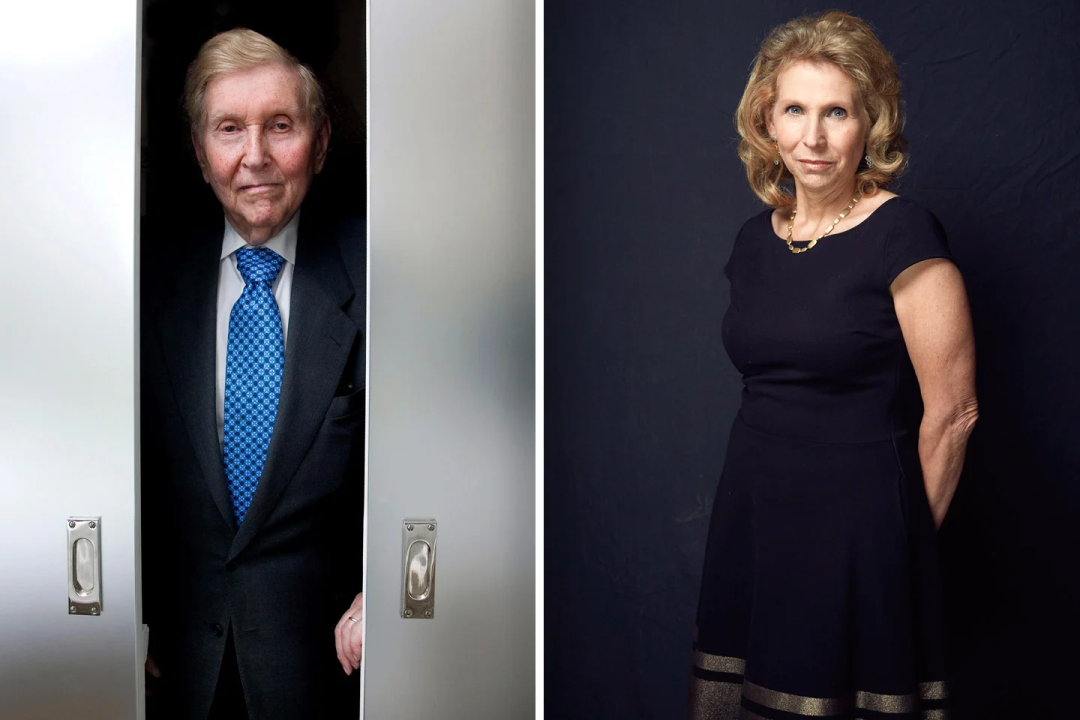Com’s own cable stations such as Lifetime and Showtime have long been targeted by Redstone, not to mention MTV now. Before Viacom bought MTV, Redstone was quietly increasing its holdings. In 1987, he bet on the wealth of National Entertainment, and sought loans from the bank to initiate the acquisition of Viacom.
After more than four months of tug-of-war, Viacom’s shareholders were finally “moved” by Redstone’s plan, and National Entertainment swallowed Viacom, which was five times larger than its own. Redstone continues to control real power through National Entertainment.
This year, the 63-year-old Redstone suddenly changed from the head of a local family business to a pivotal American media tycoon. Together with Murdoch and Trump, he became a member of Forbes. Millionaires list.
The golden age of cable TV stations had just begun at that time. Redstone found that the programs of its cable stations were very valuable, and other cable stations were often willing to buy copyrights at high prices. Viacom’s stock price has risen, driving Redstone’s assets to triple.
Seeing the surge in assets, Redstone proudly shouted the slogan that has been handed down to this day: Content is king. The channel is not the most important thing. Whoever has the high-quality content has the right to bargain.
Following the idea of ”content is king”, Redstone quickly aimed at the next target: Hollywood.
The “Paramount Act” promulgated after the “World War II” determined that companies engaged in movie theaters should not be engaged in film production at the same time. As a result, Hollywood studios have successively separated their theater chains. However, after Reagan took office, the U.S. government has relaxed its control over enterprises in many aspects, including the relaxation of antitrust restrictions, believing that vertical integration will not harm market competition.
Various capitals quickly set off a panic buying wave in Hollywood: first Murdoch bought Fox, then Time Group and Warner announced a merger, Columbia Pictures and Universal Pictures were sold to Japanese companies. Sony and Panasonic.
Disney does not sell it either. Only Paramount is left to Redstone, Hollywood’s oldest film company.
Paramount was larger than Viacom at the time, with a market value of nearly 7 billion U.S. dollars, with the latter less than 6 billion U.S. dollars. In 1993, Viacom offered US$8.2 billion, hoping to buy shareholders at a premium.
Unexpectedly, the Hollywood godfather Barry Diller, who was the CEO of Paramount, came out halfway and offered $9.5 billion. And the investors behind this acquisition are also Paramount’s major customers.
In order to spend more cash to complete the acquisition, Redstone approached the video tape company Blockbuster to discuss the merger. In 1994, with the help of Blockbuster’s sufficient cash flow, Viacom acquired Paramount at a sky-high price of more than US$10 billion at the time.
Fate once again favored Redstone. After being acquired by Viacom, Paramount successively launched “Forrest Gump” and “BraveIn 2017, I first survived two management struggles between CBS and Viacom, and then squeezed away my father’s confidant for many years. In 2019, Viacom and CBS were finally merged together to become this new media. The head of the empire.
But she came to power too late.
Although Sally has been on Viacom’s board of directors in the 1990s, and has always been the only candidate to inherit the family business, Redstone is day-proof and night-proof for his daughter and has been worried about being replaced. During this period, under the responsibility of Redstone himself, Viacom and CBS missed many opportunities.
Samler Redstone and daughter Sally Redstone
Paramount, the first partner with Marvel, handed over this gold mine to Disney. The series of blockbusters in his hand are lacking, and now it has been reduced to the point where it can barely be maintained by selling the movie to Netflix. After losing Marvel, Paramount sold the DreamWorks animation and lost the family-oriented film.
The only blockbuster series that Paramount can sell at present is “Mission Impossible”. But in the past ten years, everyone knows the contradiction between Lei Shidong and Atang. After the release of “Mission Impossible 2”, he publicly criticized Tom Cruise, blaming him for his hype about Scientology and jumping off the couch on Oprah shows that drag down the box office. Later, before the filming of each “Mission Impossible”, the contradiction between the two people’s dividends would make headlines.
In the field of television, CBS has been criticized as an elderly station, and MTV has also lost the hearts of young people. Viacom had the opportunity to invest in Facebook and Twitter, but both were missed by Redstone.
In the past two years, Disney, Warner, and Universal have all woke up to invest heavily in streaming media. However, Viacom CBS still does not have an overall streaming media program.
The combined Viacom CBS has annual revenue of more than 28 billion U.S. dollars, but its pre-interest and tax profit in 2019 is only 6.1 billion U.S. dollars, and its debt is as high as 23.7 billion U.S. dollars. According to the statistics of the “Hollywood Reporter” in March this year, Viacom CBS has the greatest debt pressure among all major Hollywood media groups.
In response to the epidemic, Viacom CBS delayed its plan to sell its Blackstone Building, and at the same time continued to promote the combined layoff plan, and issued a new $2.5 billion debt.
Maybe something went wrong from the beginning.
